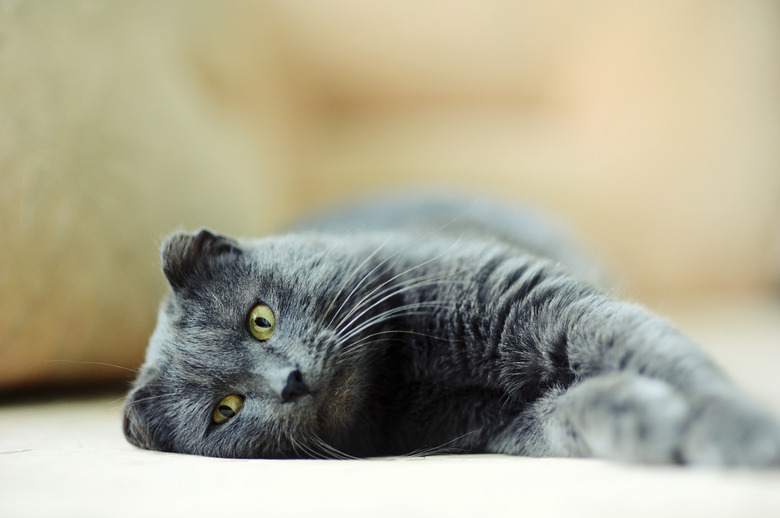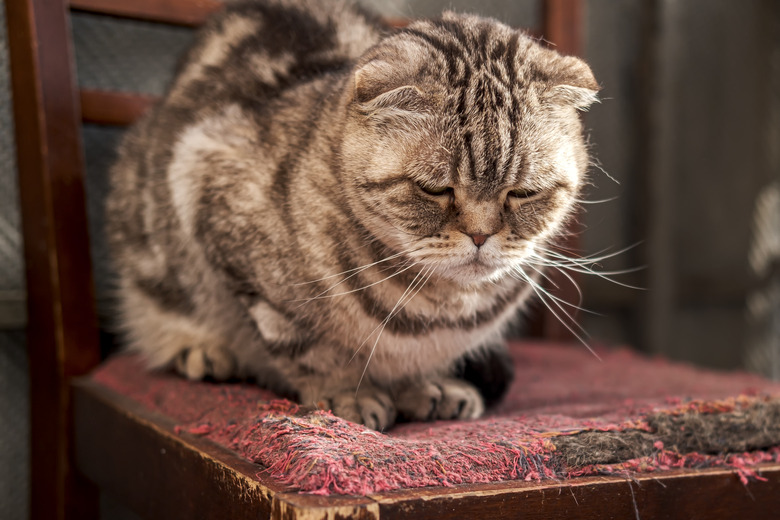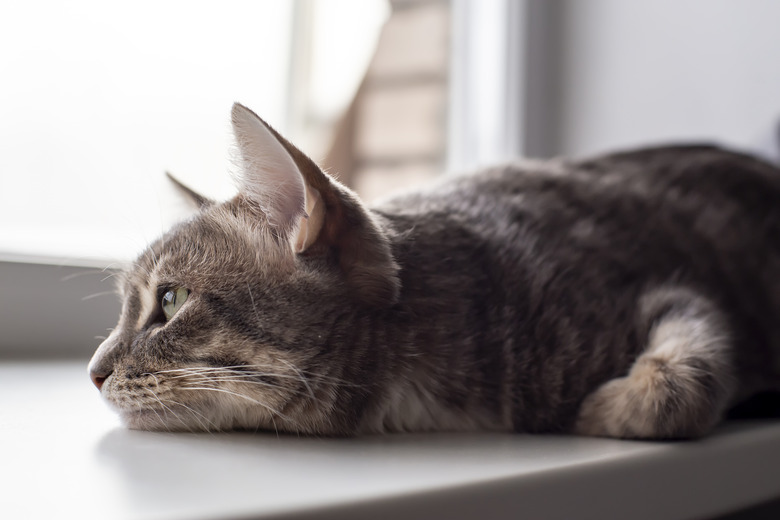Symptoms Of A Miscarriage In A Cat
A cat spontaneous abortion (miscarriage) can occur for a variety of reasons. Infections and hormonal abnormalities are common causes of miscarriage in cats. Inbred lines are at greater risk for miscarriage as are very young or aged queens. If you suspect your cat has miscarried, take her to your veterinarian. It's important to determine the cause of the miscarriage and treat it, if necessary.
Causes of cat miscarriage
Causes of cat miscarriage
Viral, bacterial, and parasitic infections are common causes of feline miscarriage. Viral infections are responsible for most cat miscarriages. Feline leukemia virus, feline immunodeficiency virus (FIV), feline herpresvirus, panleukopenia, and feline enteric coronavirus are common viruses that result in cat spontaneous abortion. Additionally, cats can contract a parasite called neospora caninum by sharing food or water bowls with an infected dog.
Hormonal shifts or abnormalities can also result in miscarriage. Progesterone is responsible for maintaining pregnancy in cats. Low progesterone levels can lead to a cat miscarrying.
Inherited diseases can put a feline at higher risk for miscarriage as can a susceptibility to FIP, or feline infectious peritonitis. Severe stress, trauma or poor nutrition can also cause a miscarriage.
Signs of cat miscarriage
Signs of cat miscarriage
In many cases, you may not even know that your cat has had a miscarriage. In early miscarriages, embryos can be reabsorbed into the cat's body with no outwardly visible signs that a miscarriage has occurred. You may not realize that your cat has miscarried until she misses her due date if she miscarries in early pregnancy.
You may or may not see outward signs of a miscarriage in later-term spontaneous abortions. Abdominal pain, fever, and abnormal vaginal discharge that's brown, black, green, or pus-colored are signs that your cat may have miscarried. Some cats who miscarry may begin to have abdominal contractions and deliver stillbirth kittens.
Diagnosing and treating cat miscarriage
Diagnosing and treating cat miscarriage
Prompt vet attention is advised if you suspect a miscarriage so you can protect against hemorrhage or infection that can result if tissue remains in the uterus. Your vet will conduct an ultrasound to determine whether your cat is experiencing or recently suffered a miscarriage.
Blood tests can monitor progesterone levels during pregnancy; low levels of progesterone may suggest a miscarriage has occurred. Additionally, cultures of vaginal fluid from the mother and examination of the fetus or fetuses can be helpful in determining the cause of the miscarriage. Treatment is typically recommended based on the underlying cause of the miscarriage.
Prevention of spontaneous abortions
Prevention of spontaneous abortions
There are cases in which you can help prevent miscarriages. If your cat has a fever, take her to your veterinarian for an exam. Fever is one indication that your cat may have an infection. Infections can be treated with antibiotics, which can help prevent a miscarriage from occurring.
If a hormonal abnormality is the suspected reason for a miscarriage, your vet may prescribe a progesterone supplement for your cat to take during future pregnancies. You'll give the supplement daily until shortly before your cat's due date. Your vet will need to monitor your cat closely when she's taking this supplement in order to prevent complications.
False pregnancy in cats
False pregnancy in cats
A false pregnancy in cats occurs when a queen goes into heat and ovulates but does not get pregnant. Her body produces more progesterone despite a lack of the presence of embryos, and the cat's body believe she's pregnant. Because a cat's body thinks she's pregnant, she will show many of the signs of being pregnant. This makes false pregnancies difficult to diagnose.
Your vet can use an ultrasound to determine if your cat is pregnant after 28 days of pregnancy or an x-ray after 45 days of pregnancy.
Treatment is typically not needed for a false pregnancy. A queen is usually ready to mate again six to eight weeks following her last heat cycle. However, sterilization is recommended for a breeding queen who has experienced a false pregnancy.


